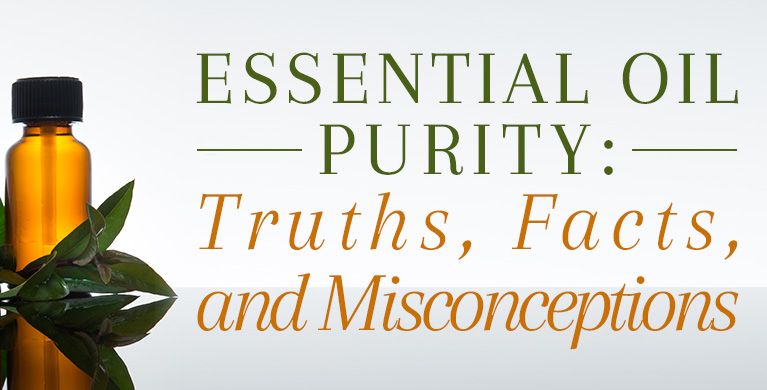Is Doterra Oils Pyramid Selling?
What is doTERRA?
doTERRA is a multi-level marketing company based in Utah that sells essential oils and other wellness products. The company was founded in 2008 by a group of health care and business professionals who wanted to share the life-enhancing benefits of essential oils with the world.
doTERRA sources its essential oils from all over the world and prides itself on having strict CPTG (Certified Pure Therapeutic Grade) standards. While there is no official essential oil grading system in the United States, doTERRA works closely with growers to ensure quality and purity.
In addition to single oils, doTERRA offers proprietary essential oil blends targeting various health applications. Popular products include Deep Blue for pain relief, On Guard for immune support, and Lavender for relaxation. doTERRA has expanded beyond essential oils to offer nutritional, spa, and healthy living products as well.
doTERRA relies on a network of independent distributors, called Wellness Advocates, to sell its products. Advocates can earn commissions and bonuses based on their own sales of doTERRA products as well as the sales of people they recruit. This multi-level structure has led to accusations of doTERRA being a pyramid scheme, which the company denies.
What is pyramid selling?
A pyramid scheme is a fraudulent business model that primarily makes money by recruiting an ever-expanding network of distributors, rather than focusing on actual product sales. Participants pay to join and must recruit others to make money. As new recruits join and invest in products to resell, a portion of their payment goes to those higher in the pyramid.

The model is unsustainable because it requires a continuously expanding pool of new recruits in order to support those above them. When recruitment of new members inevitably slows down, the pyramid collapses because most members will be unable to recover their investment or make money. Pyramid schemes exploit greed, emphasize getting rich quick, and often sell false promises of high returns with little effort. They are illegal scams in most countries.
How doTERRA’s Structure Works
doTERRA utilizes a multi-level marketing structure where Wellness Advocates can earn commissions by selling doTERRA products and building a team of other Wellness Advocates in their downline. According to doTERRA’s Compensation Plan, there are several ways to earn commissions:
To become a Wellness Advocate, you sign up through a sponsor and purchase a doTERRA introductory packet. This gives you a 25% discount on doTERRA products. As a Wellness Advocate, you can earn retail commissions by selling doTERRA products at retail prices. You purchase the products wholesale and sell them for 25% above the wholesale price.
You can also earn commissions through your downline, which refers to the Wellness Advocates you recruit underneath you. When you build a team, you earn commissions on the sales of those you have sponsored as well as additional levels of Wellness Advocates under them. This is known as the Unilevel Bonus which pays out based on sales volume each month.
There are additional bonuses and rank advancements within the compensation plan as you grow your team. According to Essential Oils with Betsy, the average annual income for a doTERRA Wellness Advocate based on rank tends to be in the range of $750-$45,000 depending on sales volume and team size.
Criticisms and controversies
One of the main criticisms against doTERRA is allegations that it operates as a pyramid scheme. In 2020, a class action lawsuit was filed accusing doTERRA of operating an illegal pyramid scheme that focuses on recruiting new distributors rather than selling products to genuine retail customers
The lawsuit claims that doTERRA distributors are required to pay high startup costs of $100-1000+ and monthly purchase quotas of $100-300 to maintain active status. There is allegedly greater incentive and reward for recruiting new distributors than making retail sales. It’s estimated that over 80% of doTERRA’s revenue comes from its own distributors purchasing products rather than outside retail customers (source).
Critics argue that the compensation structure heavily favors those at the top while disadvantaging distributors at the bottom. There are also concerns around misleading income claims used in recruiting new distributors. Overall, the lawsuit alleges doTERRA exhibits many red flags of an illegal pyramid scheme.
doTERRA’s Defenses
doTERRA defends itself against pyramid scheme accusations in several ways:
First, doTERRA sells real, high quality essential oil products that have value and utility for customers. As this article states, “doTERRA is not considered a pyramid scheme because they sell essential oils.” Their products are not just used for recruitment purposes.
Second, doTERRA does not require distributors to purchase inventory. There is no minimum order requirement to sign up or remain active. This removes the pressure for distributors to stock up on product.
Third, doTERRA emphasizes retail sales to real customers outside the business opportunity. Their policies encourage distributors to sell at least 70% of their monthly purchases to earn full bonuses.
Finally, distributors earn compensation primarily from product sales rather than recruitment. doTERRA states that over 65% of Distributor bonuses come from sales volume points, not enrollment.
Overall, doTERRA distances itself from pyramid schemes by focusing its model on real products, retail sales, and compensation from customer purchases rather than recruitment.
Warning signs of a pyramid scheme
According to the Federal Trade Commission (FTC), there are some key warning signs that indicate a business may be operating as an illegal pyramid scheme rather than a legitimate multi-level marketing company:
Promoters make extravagant promises about your earning potential. The FTC says these promises are likely false. No one can truthfully guarantee how much money you can make in a business opportunity.1
The business focuses more on recruitment than on product sales. Pyramid schemes make most of their money from recruiting people rather than selling products to real customers.1
You cannot make any money simply by selling products or services. With pyramid schemes, the real profits come from recruitment. So you can’t turn a profit just from retail sales alone.1
The company claims you can quit your job once you join. Pyramid schemes advertise that you can make enough money to quit regular work, which is highly unrealistic.2
Key differences from a pyramid
doTERRA has some key differences from a typical pyramid scheme:
doTERRA sells real, in-demand products – essential oils that have a large market and consumer demand. They don’t just take money for joining or recruit others.1
There are no required inventory purchases to join or stay active. Many pyramid schemes require buying products to participate, but doTERRA does not.2
Retail sales to actual customers outside the business are encouraged. Pyramid schemes only care about recruiting, not retailing. doTERRA actively encourages selling to real retail customers.3
Remaining concerns
While doTERRA has made efforts to differentiate itself from a pyramid scheme, some important concerns still linger related to the opportunity:
High startup and monthly purchase costs – To qualify for commissions, Wellness Advocates must buy enrollment kits starting at $35 and purchase 100 PV of products per month, costing around $100. Critics argue these required purchases mainly benefit the company and upline members rather than reflecting true retail demand (CNBC).
Questions over actual retail demand – doTERRA claims a majority of purchases are for personal use. However, some analyses indicate demand is driven more by qualification requirements than true demand (FTC).
Recruitment rewards can dominate – While doTERRA states most income comes from product sales, compensation plans show greater rewards for building downlines than selling products (FTC).
The Verdict
While doTERRA has some similarities to pyramid schemes, it does not appear to meet the legal definition of an illegal pyramid scheme according to the FTC criteria. This is mainly because doTERRA sells a legitimate product in essential oils, and consultants can earn money by selling these products without having to solely focus on recruitment[1]. Pyramid schemes on the other hand make money through signing people up and collecting fees, without any real products being sold.
However, some controversies remain around doTERRA’s business model. Critics argue that making money in doTERRA still depends heavily on recruitment and creating a “downline”, even if selling products is technically required[2]. The compensation structure has been called into question, with most of the income going to top levels while base consultants struggle. While not illegal, doTERRA does share some similarities with pyramid schemes in terms of prioritizing growth and recruitment over product sales.
So in summary, doTERRA is not considered an illegal pyramid scheme according to the FTC, but still utilizes some controversial techniques common in pyramid schemes. The verdict is mixed, while not outright fraudulent, questions remain about the sustainability and ethics of their business structure.
The future of doTERRA
doTERRA appears positioned for continued growth and expansion in the coming years. According to doTERRA’s 2023 Annual Business Builders Report (https://media.doterra.com/us/en/flyers/business-builders-report.pdf), the company plans to expand into new markets and launch innovative new products. doTERRA cites strong consumer demand for essential oils and a growing wellness movement as trends that will fuel future growth.
However, increased regulation of multi-level marketing companies could pose challenges for doTERRA. Critics argue that some aspects of doTERRA’s compensation model skirt the line of legality in certain jurisdictions. As regulators pay more attention to the MLM industry, doTERRA may need to modify its model to comply with stricter rules.
doTERRA also faces stiff competition from both MLM and non-MLM essential oil companies. According to one industry analysis (https://www.linkedin.com/pulse/navigating-essential-oil-market-growth-trends-future-bcxyf), the global essential oils market is projected to grow steadily in the coming years. doTERRA will need to continue innovating and maintaining its brand reputation to stay atop this rapidly evolving market.





